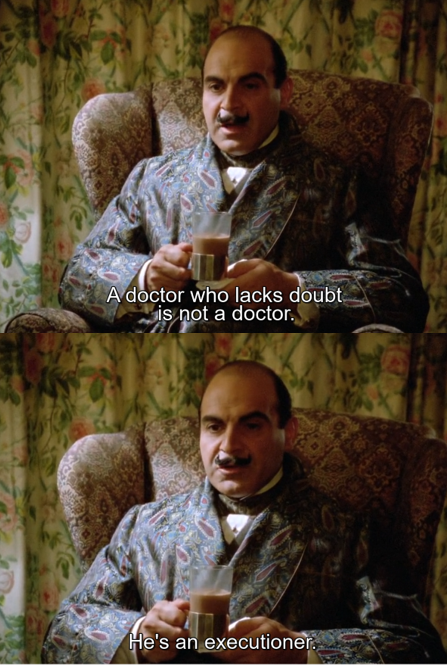104. Executions

In The Cornish Mystery episode of Agatha Christie's Poirot, detective Hercule Poirot encounters a doctor who stubbornly refuses to reappraise his diagnosis of gastritis after his patient dies of arsenic poisoning. "Did I waver from that diagnosis? Never," the doctor says proudly. Afterwards, Poirot informs his associate Hastings, "A doctor who lacks doubt is not a doctor. He's an executioner."
How many such doctors do non-apparently chronically ill patients like me encounter today? So certain in their ocularcentric hermeneutic expertise that they feel utterly justified in recording well-appearing pt in no apparent discomfort? Non-apparent chronic pain invites the kind of misbelief visited on the Trojan seer Cassandra: her proclamations were never believed, but others' assumptions about her and her motives were accepted without question.
The execution, with its cold comfort of an ending, would be kinder.
In the game of biomedical roulette, I, a nonwhite, noncompliant woman regularly on controlled substances from Schedule II to IV, have been impossibly lucky. The lack of doubt has not killed me yet.
(– 71. Kāla and Kairos)